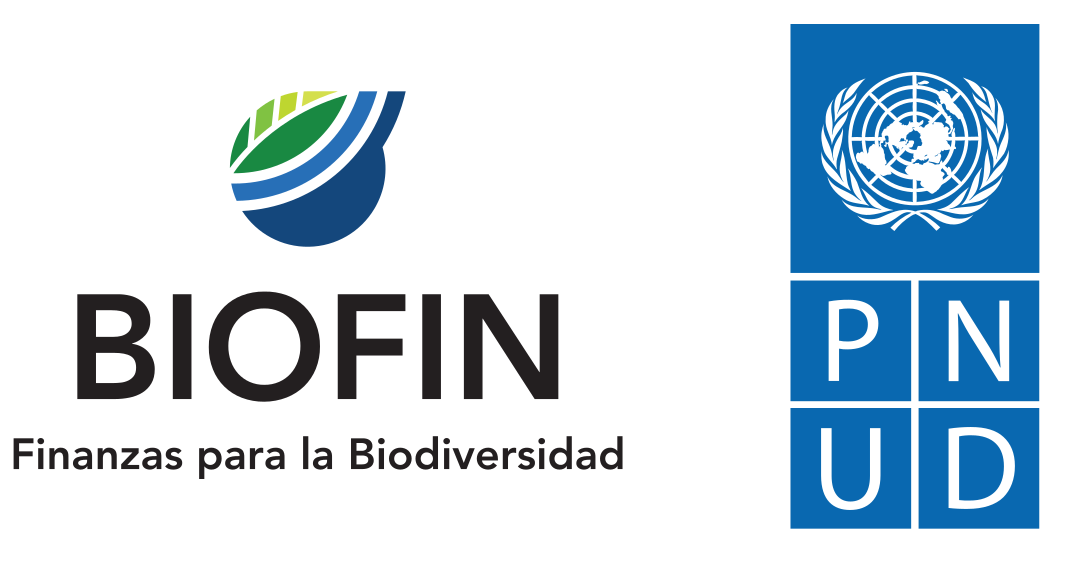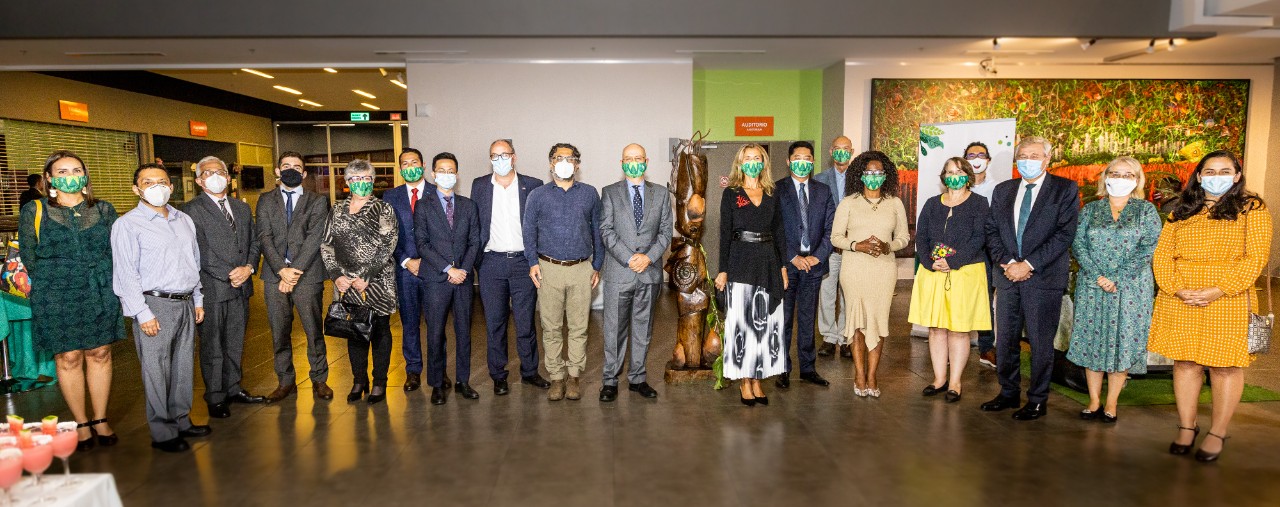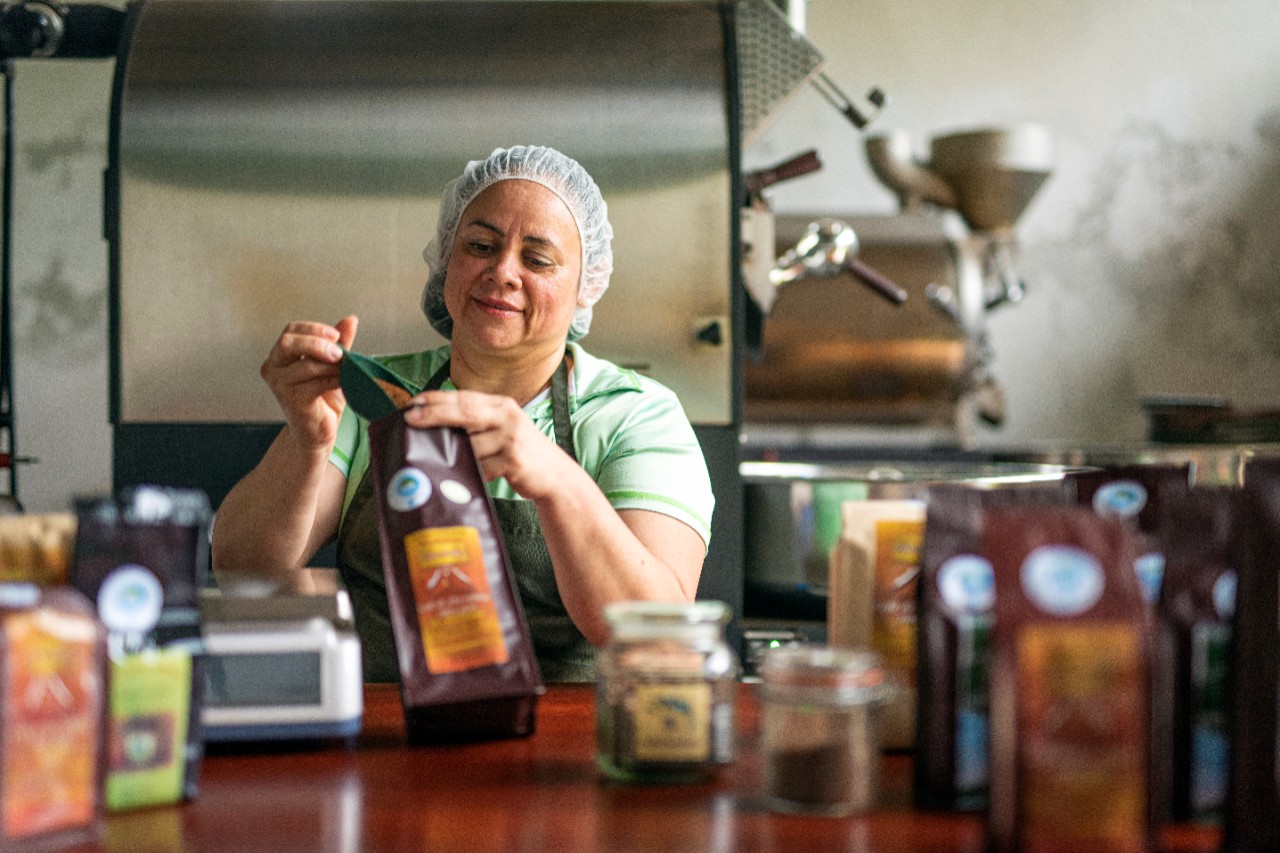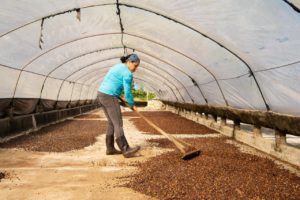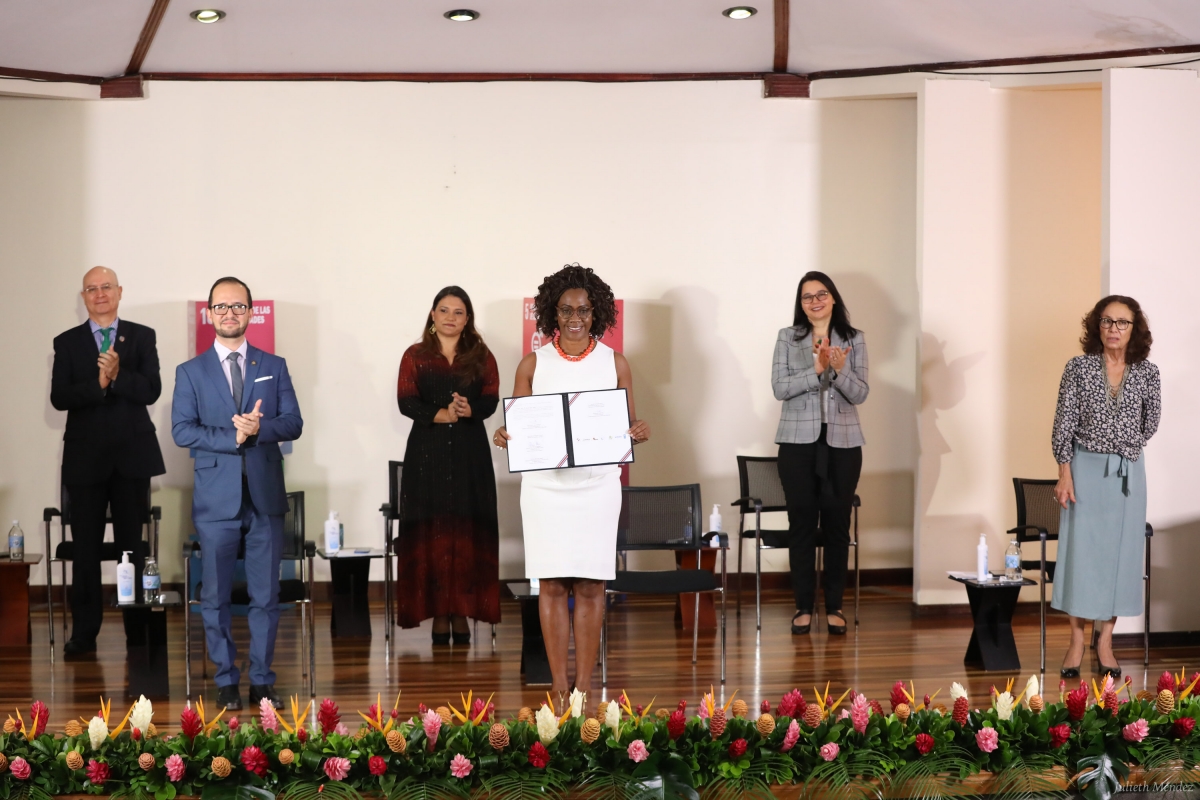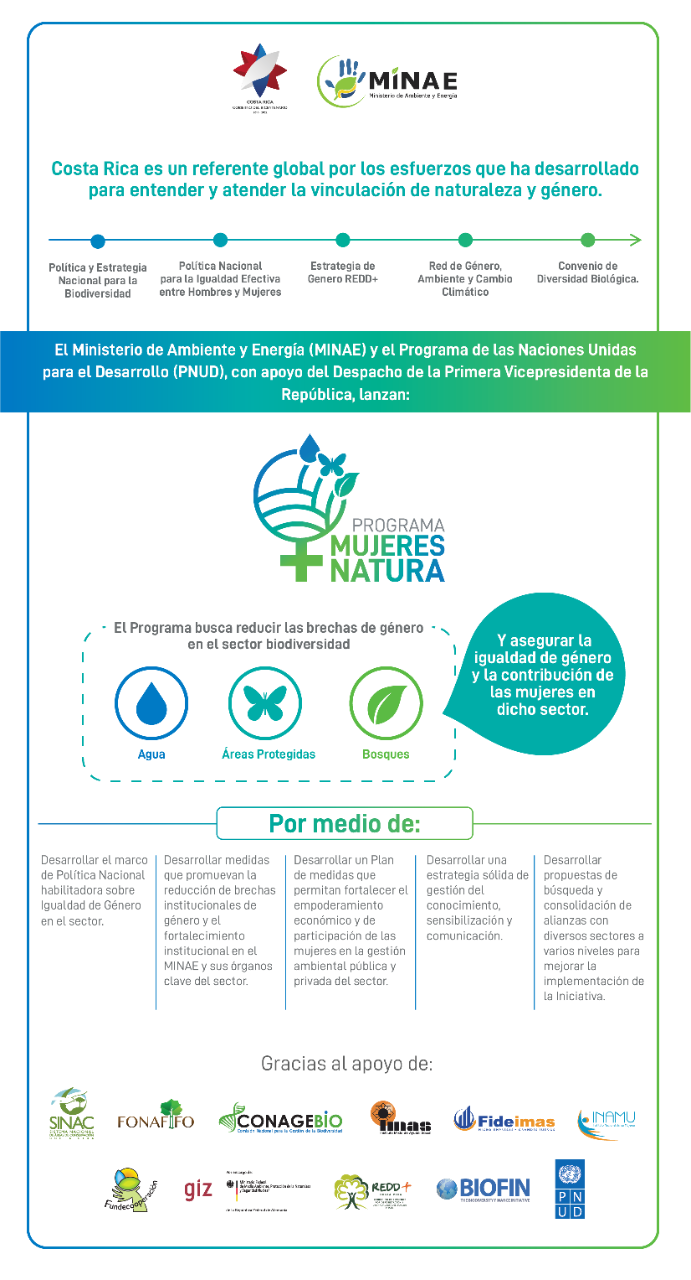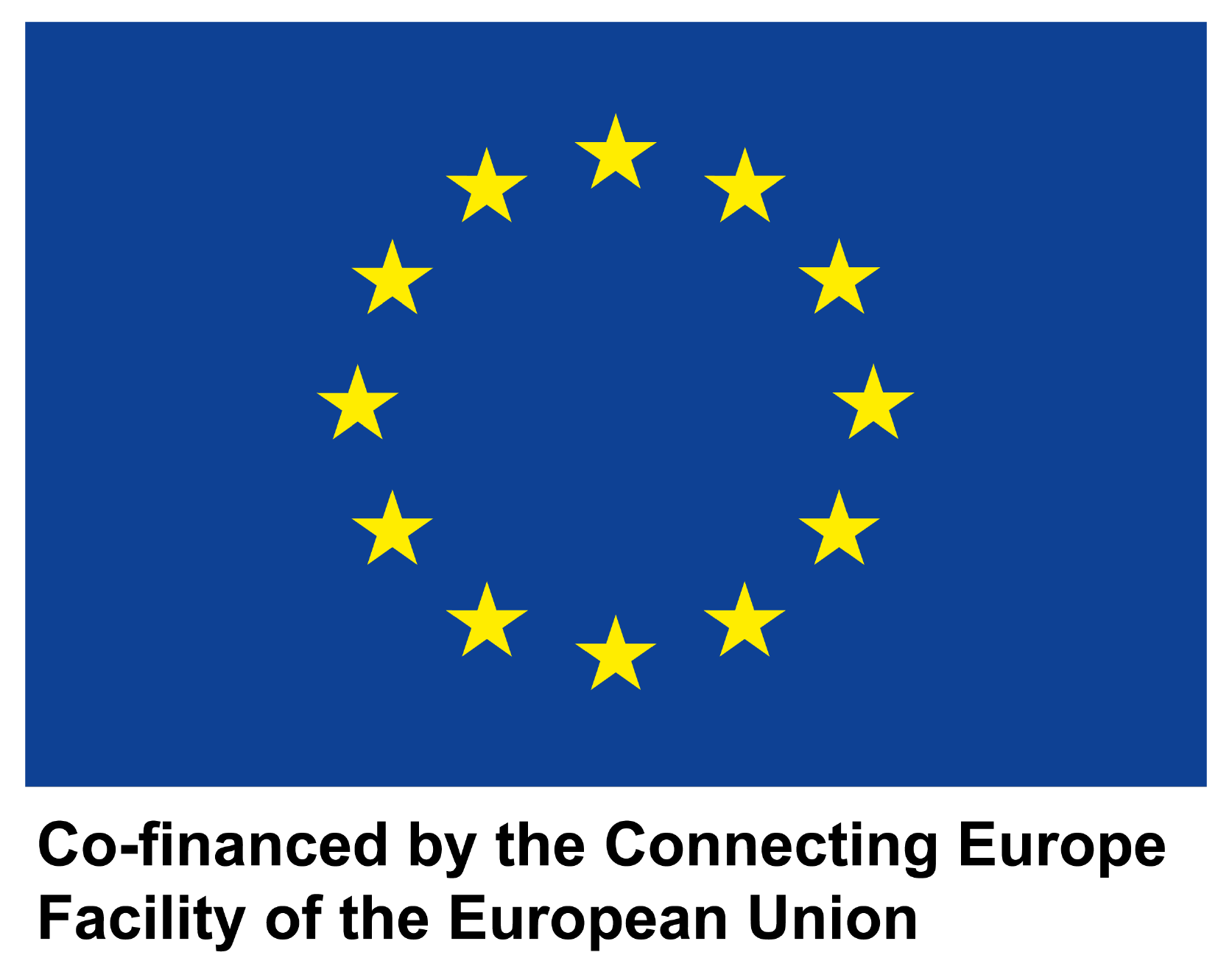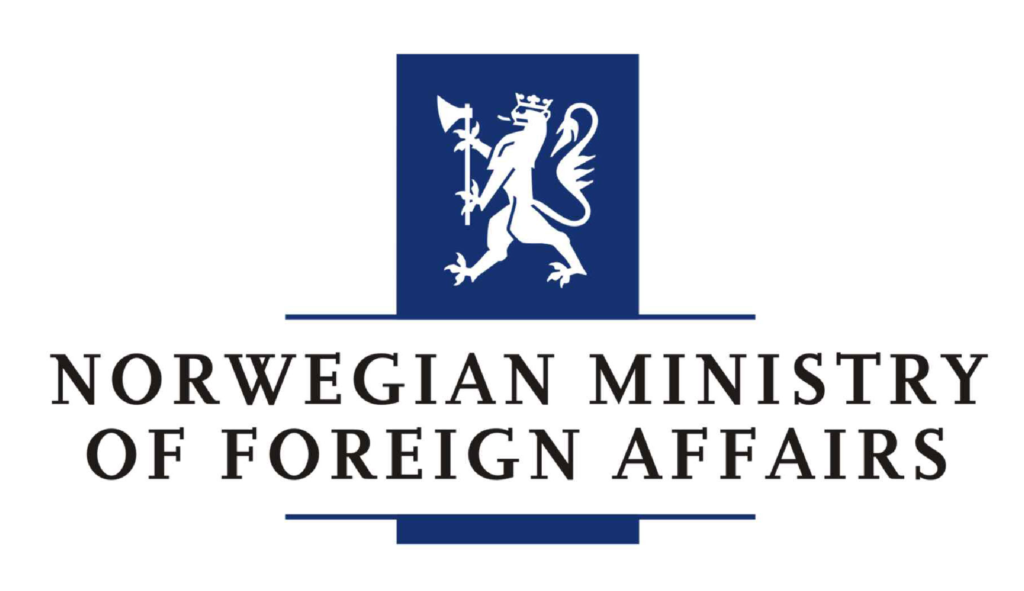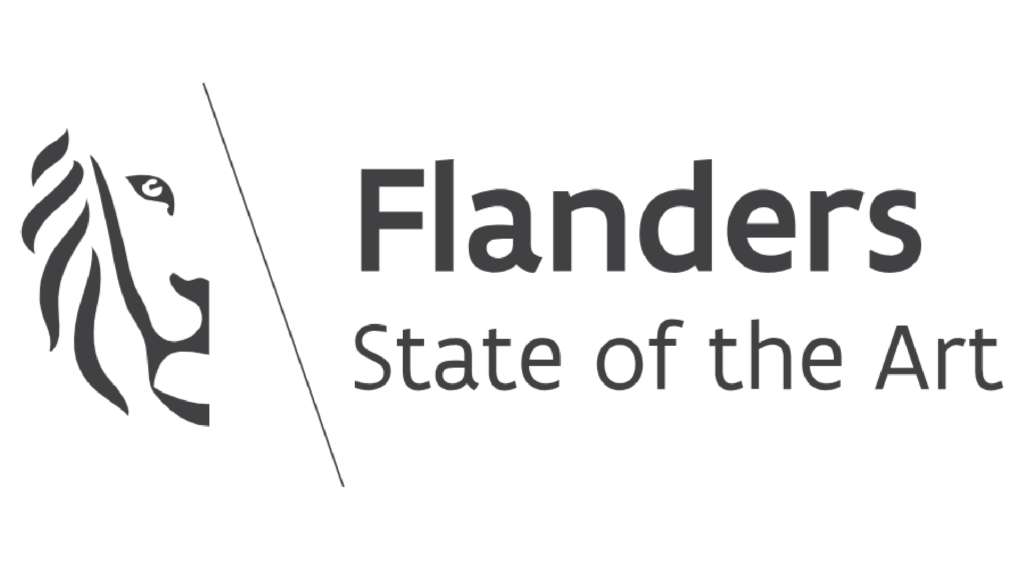· The planting of endemic, floral, fruit and timber trees was carried out in 8 cantons in the northern part of the country.
· This Thursday a report was presented on the achievements of “Footprint of the Future”, with the participation of government authorities, the diplomatic corps and public-private allies.
· Thanks to public-private donors, the initiative is close to achieving its goal of planting 200,000 trees.
San José, September 23, 2021. In an event held at the Jade Museum, the government of Costa Rica (Vice Presidency, MINAE, FONAFIFO), the Banco Ambiental Foundation and the BIOFIN initiative of the United Nations Development Program (UNDP ), presented the achievements to date within the framework of the “Footprint of the Future” initiative.
The main progress achieved so far is summarized in the planting of 172 thousand trees in 8 cantons of the northern part of the country, thus providing a total of 186 green wages to beneficiaries, which will help boost the economy of the area, a of those most affected by the COVID-19 pandemic.
The opening of the activity was led by the Vice Minister of the Environment, Franklin Paniagua, who highlighted that Huella del Futuro is an initiative created within the framework of the celebration of the Bicentennial of Independence of Costa Rica, but that responds to a broader framework of goals. national and international, including the Decarbonization Plan and the Sustainable Development Goals, in particular SDG 15 ”.
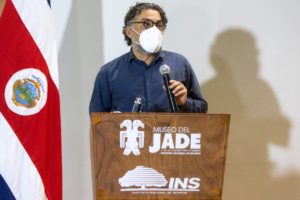
Meanwhile, the incumbent president, Epsy Campbell, promoter of this initiative, expressed “deep gratitude to each embassy, company and ally that collaborated for this goal. Thank you for giving women and community societies the opportunity, for contributing to a healthier environment and for contributing to the transformation of a productive matrix of nature-based solutions ”.
For José Vicente Troya, UNDP representative in Costa Rica, the conservation and sustainable use of ecosystems can be a great tool in the fight against pandemics, while representing at least 30% of solutions to climate change, as well as the opportunity to promote businesses and green wages on a path of decarbonization and economic reactivation.
The European Union and the German Federal Government, in coordination with the Central American Commission for Environment and Development, through the Green Development Fund for the SICA region, were among the first partners to join the project with a contribution of more than 130 thousand trees For Katja de Sadeleer, Minister Counselor and Head of the Political Section of the Delegation of the European Union, “Huella del Futuro reflects the country’s leadership in environmental issues and innovation to create environmental mechanisms that also contribute to improving the means and quality of life of the people”.
In addition to the accountability event, the current president, Epsy Campbell and the vice minister of the Environment, Franklin Paniagua, the director of the National Forest Financing Fund and representative of the Banco Ambiental Foundation, Jorge Mario Rodríguez, the head of the Political Section of the Delegation of the European Union, Katja de Sadeleer and the resident representative of the United Nations Development Program, José Vicente Troya.
Also present were representatives of the diplomatic headquarters in Costa Rica from Germany, China, Spain, France, Italy, Switzerland, as well as corporate partners from the public and private sector, among which were representatives of Huawei, EPA, Emerson, Accenture, ICU – Medical, Central American Bank for Economic Integration, National Insurance Institute, Ministry of Public Education and Coopelesca.
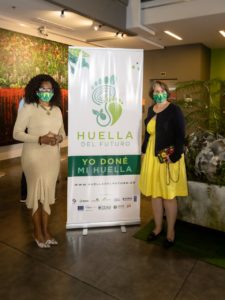
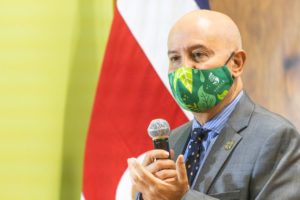
About the Future Footprint initiative
Footprint of the Future is an initiative created within the framework of the celebration of the bicentennial of Costa Rica’s independence that aims to bring together partners from various fields with a view to greening the Northern Zone of Costa Rica, by planting 200,000 endemic, floral trees, fruit trees and timber.
The project aims to contribute to increasing forest cover to 60% by 2030, as well as combating the negative effects of climate change. This program, in addition to ensuring the maintenance of the species for five years, establishes a map that can be consulted online (www.huelladelfuturo.cr) where it is possible to view the place where each tree has been planted and other information.
According to data from Huella del Futuro, in addition to reforestation, this initiative will contribute to the generation of 14,000 green wages, which will boost the economy of the area, one of the most affected by the COVID-19 pandemic. The initiative was created within the framework of the alliance between the Government of Costa Rica, led by the Vice Presidency, with support from MINAE, FONAFIFO, the Biodiversity Finance Initiative (BIOFIN) of the UNDP and is implemented by Fundación Banco Ambiental in alliance with municipal governments, civil society and strategic allies.
We invite all people, companies, organizations that want to be part of the project to enter the website www.huelladelfuturo.cr
If you want to see the materials on accountability enter HERE
Original note:PNUD Costa Rica – “Huella del Futuro” celebra bicentenario con 172.000 árboles plantados
